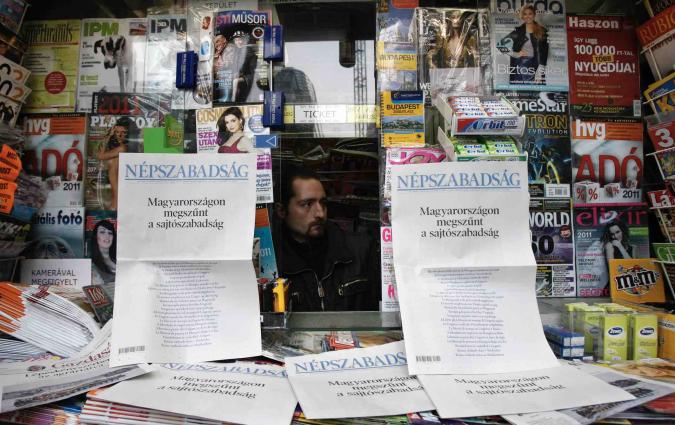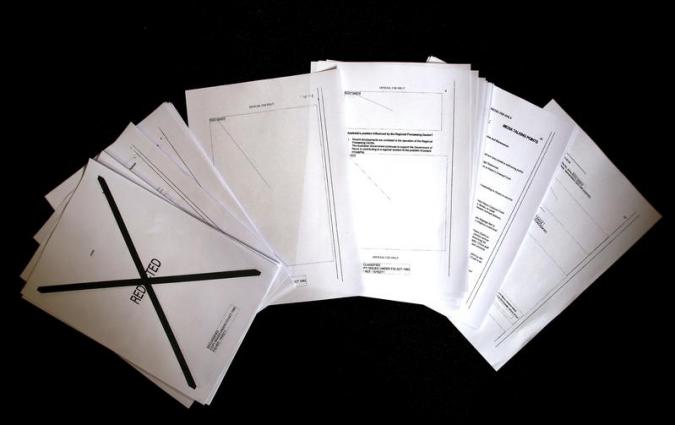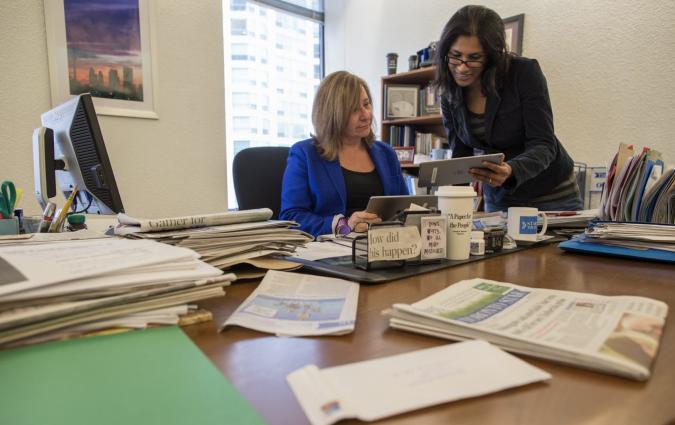In this piece
How the Kenyan news media are using peer review to promote accountability

Kenyan news readers seen on Kenyatta Avenue in Nairobi. | Reuters/Monicah Mwangi
In this piece
Criticism, like rain, should be gentle enough to nourish a man’s growth without destroying the roots. So said politician and lawyer Frank A. Clark. This is the spirit of peer review, where the goal is not to vilify but to improve quality.
After several years of embarrassing errors and missteps by Kenyan journalists the practitioners themselves have made efforts to take control of the problem by working together to issue a weekly quality review in the form of the Media Observer newsletter.
In my paper (which can be downloaded below), I outline what brought the Kenyan media to this crossroads, how the Media Observer works, the key benefits it yields, and how other regions can implement their own peer review initiatives.
Feedback is a vital part of any communication process. Without it, we do not know if our message has been effective. And while the feedback we receive in comment sections and on social media from our audiences is helpful, receiving feedback from colleagues who know how the sausage is made is incredibly valuable.
Providing feedback to journalists through peer review initiatives promotes a culture of collective responsibility and encourage a healthy debate around media content by both journalists and the public. It cannot replace internal quality controls, but it can alert media houses to gaps in their controls.
Formalising the process of peer review – away from the pressure of deadlines, and with the benefit of hindsight – also encourages journalists to develop critical thinking skills, which in turn can help us to know our own strengths and weaknesses.
At a time when state leaders enjoy vilifying the media with as much abandon as our social media trolls, being part of a peer review network can inculcate a feeling of belonging, where journalists across media houses view themselves as part of one big professional family and not just “us versus them”.




